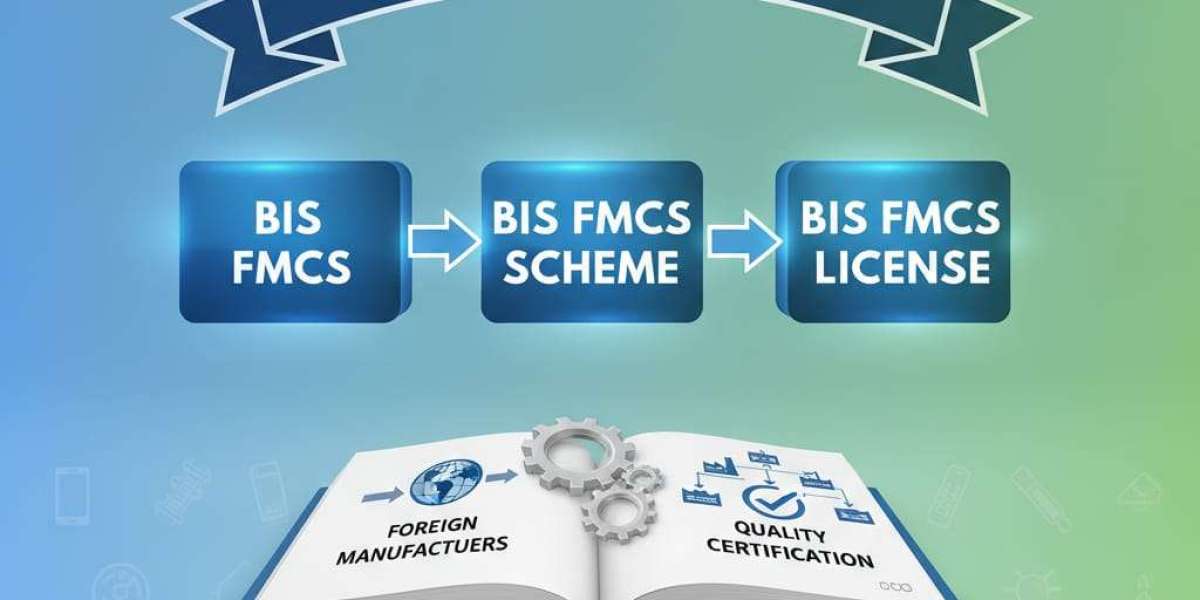Introduction
India is one of the fastest-growing consumer markets in the world, attracting thousands of foreign manufacturers every year. However, before selling products in India, foreign manufacturers must comply with local regulations. One of the most important requirements for them is obtaining approval under the BIS FMCS Scheme and securing a valid BIS FMCS License.
In this detailed guide, we will explain everything about the BIS FMCS Scheme, the BIS FMCS License, its process, documentation, benefits, and key challenges faced by foreign manufacturers.
What is BIS FMCS Scheme?
The BIS FMCS Scheme (Foreign Manufacturers Certification Scheme) is a special certification program launched by the Bureau of Indian Standards for manufacturers located outside India.
This scheme allows foreign manufacturers to obtain BIS certification for their products and legally export them into the Indian market. It ensures that imported products meet the same quality, safety, and performance standards as products manufactured within India.
Under this scheme, foreign manufacturers can obtain certification for products that fall under mandatory BIS certification, such as electronics, electrical appliances, building materials, and industrial goods.
What is a BIS FMCS License?
A BIS FMCS License is issued by the Bureau of Indian Standards to foreign manufacturing units that comply with applicable Indian Standards.
Once a foreign manufacturer receives a BIS FMCS License, they are allowed to:
- Export certified products to India
- Use the BIS Standard Mark (ISI Mark/CRS mark where applicable)
- Distribute and sell products through importers and distributors in India
This license is mandatory for many categories of imported products, especially electrical and electronic items.
Why is BIS FMCS Scheme Important for Foreign Manufacturers?
The BIS FMCS Scheme plays a crucial role in regulating imported goods in India. Here’s why it is important:
- Legal Entry into Indian Market: Without a BIS FMCS License, many products cannot be imported or sold in India.
- Consumer Safety Assurance: Ensures that foreign products meet Indian safety standards.
- World-Class Quality Standards: Aligns international manufacturing with Indian compliance.
- Avoids Customs Issues: Helps companies prevent detention or rejection of goods at Indian ports.
- Boosts Brand Credibility: Builds trust among Indian consumers and distributors.
Products Covered Under BIS FMCS Scheme
The BIS FMCS Scheme applies to a wide range of products, including:
- Electrical appliances
- LED lights and drivers
- Cables and wires
- Switches and sockets
- Batteries and power banks
- Industrial machinery components
- Construction materials like cement and steel
Any foreign manufacturer planning to export these products to India must obtain a BIS FMCS License for the specific product and manufacturing unit.
Process for BIS FMCS License
The process for obtaining a BIS FMCS License involves several critical steps:
Step 1: Application Submission
The foreign manufacturer has to submit an application to BIS along with required technical and legal documents.
Step 2: Product Testing
Samples must be sent to a BIS-recognized laboratory in India for testing as per the applicable Indian Standard.
Step 3: Factory Inspection
A BIS team visits the manufacturing facility located abroad to conduct a thorough inspection. They verify:
- Manufacturing process
- Machinery and testing facilities
- Quality control system
- Raw material handling
Step 4: Grant of BIS FMCS License
If the inspection and test results are satisfactory, BIS grants the BIS FMCS License to the foreign manufacturer.
Documents Required for BIS FMCS Scheme
Foreign manufacturers need to arrange multiple documents for smooth approval, such as:
- Company registration certificate
- Manufacturing unit details
- Quality manual and quality control procedures
- Product technical specifications
- Factory layout and equipment list
- Product test reports from BIS-recognized labs
- Authorized Indian Representative (AIR) details
The Authorized Indian Representative plays a vital role as a communication bridge between BIS and the foreign manufacturer.
Validity and Renewal of BIS FMCS License
A BIS FMCS License is usually issued for a period of 1 to 2 years, depending on the product category and compliance record.
After validity expiry, renewal must be done by submitting updated documents and test reports to BIS. Delay in renewal may lead to penalties or suspension of the license.
Benefits of BIS FMCS License
Obtaining a BIS FMCS License offers many operational and commercial benefits:
- Legal sale of products in India
- Smooth customs clearance
- Improved brand value in the Indian market
- Increased confidence of distributors and importers
- Competitive advantage over uncertified products
Foreign manufacturers with BIS FMCS License often gain more trust from Indian buyers and government agencies.
Challenges Faced by Foreign Manufacturers
Even though the BIS FMCS Scheme is beneficial, foreign manufacturers often face challenges such as:
- Complex documentation process
- High cost of testing and factory inspection
- Communication gaps due to time zone differences
- Technical understanding of Indian standards
Proper planning and expert guidance can significantly reduce these hurdles.
Conclusion
The BIS FMCS Scheme and sunconsultants.co.in are essential for foreign manufacturers aiming to enter the Indian market legally and smoothly. They ensure that imported products meet Indian quality standards and protect the interests of consumers as well as businesses. With the right documentation, testing, and professional support, foreign manufacturers can obtain their BIS FMCS License without unnecessary delays and complications.



